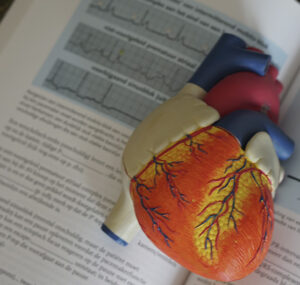Nursing professionals spend the maximum amount of time with patients. They affect patient care to a great extent and are expected to perform a wide range of duties in the everyday scope of practice. Nurses play a significant role in taking care of the physical needs, mental wellness, and overall well-being of patients.
Completing nursing courses in Canada and getting trained thereafter enables nurses to master a wide range of skills that help in treating patients. If you are beginning your nursing career or studying nursing, then understanding what nurses do in their everyday scope of practice can benefit you.
In this blog, we will see who a nurse is and all the responsibilities a nurse is expected to fulfil in the everyday scope of practice.
Who is a Nurse?
A nurse is a medical professional in charge of providing patient care to individuals in need. Nurses complete their registered nursing programs, get trained, and work with a team of medical professionals to offer patient care.
Nurses work in a wide range of professional settings such as clinics, schools, hospitals, rehabilitation centers, senior care homes, etc. Regardless of the settings in which they work, nurses are the primary care providers. They make sure that the patients are supported and taken care of at each step.
The responsibilities of a nurse might differ based on where they work, the licenses they have, and their overall experience. Some of the common responsibilities of a nurse include the following:
- Recording Medical Symptoms and Treatment Progress: Nurses are primarily responsible for recording and maintaining precise documentation of the patient’s health. This is to ensure that the patients are getting proper treatment.
In the course of nursing education, nurses are taught to start this process by asking questions to their patients that pertain to medical history. Based on the questions, nurses gather information on previous diagnoses and surgeries, medications, family medical information, etc.
Nurses are also expected to know about all the symptoms of a patient by recording the vitals timely. In case a patient is diagnosed with a new problem, a nurse is supposed to update the medical record with the information. Maintenance of detailed and accurate medical records ensures that patients get the best medical care.
- Performing Regular Diagnosis With Tests: Nurses may also perform a wide range of diagnostic tests that include blood and urine samples, checking vitals, collecting blood for analysis, etc.
The information obtained for the diagnosis of patients helps in developing treatment plans. Therefore, it is considered necessary for nurses to pay close attention to small details for ensuring that tests are administered properly.
Nurses have to analyse the results, update the medical records, and share the test results with other medical professionals as well. Nurses are responsible for performing the diagnostic tests regularly until the results are favourable.
- Giving Medications to Patients: Often, specialized nurses are allowed to administer medications to their patients without the supervision of a physician. That said, there are some medications and treatments that need the approval of a physician and sometimes even supervision.
An important part of the jobs for nurses is to develop a treatment plan including necessary medications for the patients. Other than this, nurses also help in cleaning and dressing up wounds, changing bandages and inserting catheters.
Nurses assist the doctors when advanced medical procedures are being carried out. They may also assist the doctors when emergency care is to be administered to the patients in critical condition.
- Carrying Out Physical Examinations: Nurses carry out physical examinations during the beginning of their visit to assess the overall health of patients. This includes monitoring the patient’s body temperature, weight, vitals such as heartbeat, blood pressure, etc.
The physical examination also includes testing the reflexes of the patient, checking eyes, nose, ears, throat, etc. Performing physical examinations regularly offers nurses and other medical professionals a relevant update on the patient’s health.
An effective way to perform physical examinations is by talking to the patients about their health goals and concerns. Once these objectives are defined, efforts can be made to attain them with medical treatment.
- Collaborating With Other Medical Professionals: A primary aspect of the training given to nurses after the registered nursing programs involves learning how to collaborate. Nurses are supposed to collect medical information from patients and share it ahead with other medical professionals.
Nursing professionals should have flawless communication skills because that helps in collaborating with physicians and other healthcare providers. With clear and concise communication skills, it also becomes easy for nurses to ensure that patients and their loved ones understand important information.
- Checking and Placing Orders for Medical Equipments: As nurses are responsible for performing diagnostic tests regularly, there is a need for medical equipment. The equipment can include tools such as glucose meters, stethoscopes, oximeters, thermometers, BP machines, etc.
A nurse may also be trained to use specialized machinery including ventilation equipment, intravenous infusion pumps, and much more. The kind of equipment that a nurse is allowed to use depends on the kind of nursing education that a nurse has and the license that a nurse holds.
With a strong academic background in technology, nursing professionals can use medical equipment for analyzing the results precisely. Technology is advancing with each passing day and this leads to the development and use of new tools. Nurses must make an effort to keep themselves updated in this scenario.
- Offering Mental Support and Advice to Patients: Nurses have a responsibility to ensure that patients feel cared for, listened to and understood. This role gets all the more important when nurses have to deliver difficult news to patients about a medical condition.
Nurses have to understand that patients look for support and advice to process diagnoses and determine what steps should be taken next. Nurses must be empathetic towards patients and their family members when it comes to offering comfort and guidance during COVID situations.
Nursing professionals also equip their patients with coping strategies and offer them inpatient and outpatient resources. All in all, nurses offer consistent support and advice to patients for ensuring optimal recovery.
- Advocating for Patients and Their Well-Being: To ensure that patients are cared for, nurses also play the role of advocates for the health and well-being of patients. It is the responsibility of nurses to translate the medical information provided by a doctor to the patient.
Nurses also encourage patients to ask more questions so that all details are understood and doubts are clarified. According to the situation at hand, nursing professionals also connect the patients to another medical facility that is better suited for the needs of patients.
Nursing professionals can also advocate for their patients by taking extra time to actively listen to their concerns, respecting their wishes, and communicating what the patient wants. All these factors are focused on advocating for patients and their well-being.
- Facilitating Patient Education: An important part of a nurse’s job is to educate patients on different medical conditions while providing clear instructions on how to manage symptoms. This includes explaining what medications the patient needs when the patient should schedule a follow-up, and giving instructions for rehabilitative exercises.
Jobs for nurses require the nursing professionals to educate patients about common diseases in different ways. This can include speaking at seminars, conferences, meetings, etc. Other ways to do this can be participating in medical drives, health screening checkups, etc.
- Offering Bedside Care: Nursing professionals are responsible for various bedside related tasks depending on the specific working environment. Some of these tasks include helping patients take a bath, using a bathroom, and performing basic hygiene activities.
Other than this, bedside patients also offer patients consistent emotional support, suitable medications, etc. They also check vitals at regular intervals.
Conclusion:
Deciding to become a nurse is to become a professional who improves and saves the life of others. If you are looking for a career where you want to help others then becoming a nurse is one of the best career paths for you. Move ahead in the direction of becoming a nurse by enrolling on a suitable nursing course in Canada, today.






